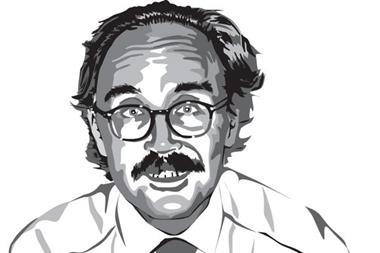Nathan Skinner chairs a discussion on the issues that will be important for 2009 and beyond
What are the big risks that concern you?
Maurizio Micale: One of the big issues is that during the downturn we could see consolidation in our specific sectors of the industry. There is a lot of M&A activity during the downturn because there is an opportunity to generate much more value for the shareholders. From my point of view, in my profession this could be either an opportunity or a risk.
Alessandro De Felice: I think one of the major risks in a period when the European stock exchanges are going down, revolves around the famous BRIC (Brazil, Russia, India and China) emerging countries. If a European company goes to one of these emerging markets to make an acquisition there, the rules are completely unclear. We are not competing on the same terms. When they come here they compete with our rules, when we go there we compete with their rules, but their rules are not defined or simply don’t exist. So it’s more difficult for us. If you consider corporate governance and ethics, there are various markets where the local market conditions are very different to our regional countries. It brings risks on the ethics side to the mother companies.
Marco Binazzi: In the cement business we are entering a difficult period in terms of increasing costs and decreasing demand for our products. I would like to say this will be just a temporary thing, but it’s not clear whether this situation will be solved within the next year. At the moment we are entering a period of significantly decreased demand.
Alessandro, do you have the same concerns about consolidation?
Alessandro De Felice: Yes, this economic situation should make companies focus more on their business and consolidating their business. But this is something that in my industry has been going on for a couple of years.
How is the insurance industry evolving?
Maurizio Micale: I think the insurance industry in the next six to 12 months will see a lot of change, in particular regarding the future of AIG. I have recently met some of the top managers in Paris and even they don’t know exactly what is going on.
Alessandro De Felice: That’s because it depends on the real amount of AIG’s losses [on November 10 AIG posted third quarter losses of $24.47bn – see box]. Is what is known at the moment the real picture? Or is there a larger picture, still unknown, which could affect the future of the company?
Maurizio Micale: This is for sure one of the points, but there are also two other factors which we have to consider. How is AIG going to execute this disinvestment plan? There is a design and clear plan that they want todisinvest some of their non-core businesses in order to refocus on property casualty. Whether or not they remain a property casualty carrier depends on how quickly they raise money on this disinvestment plan. Another question which is not completely clear is what effect the new US administration will have. What will they want to do with AIG? AIG could be used as an arm for the new administration to execute a political strategy. This is not clear.
Alessandro De Felice: They could focus more on the US domestic business rather than international business, even if they are sending the message that they want to remain a major global competitor.
“Maybe there should be a third party authority that certifies the process of the rating agencies
Alessandro De Felice
Maurizio Micale: But today 79% of the company is in the hands of the US government. What will they want to do? Maybe set up a new medical care plan or a new life insurance plan. This could be an opportunity for the new US government. Perhaps in three months President Barack Obama will put AIG back into the market, because he wants his money back. AIG is going to be repositioned in the next six to 12 months and this could affect the rest of the industry.
Marco, what effect is the financial crisis having on your insurance buying?
Marco Binazzi: Now that we are proceeding with renewals the answers are quite positive. I don’t think we have major difficulties in renewing our programmes. Our partners are giving us satisfactory answers regarding capacity and premium. It is not the major issue. The amount of premium of course we are interested in, but first of all we are interested in the capacity of our partners. I don’t think we should have, at present, or even over the next year, major difficulties in this matter.
What about credit insurers? Are they tightening up their terms?
Marco Binazzi: Yes, this is the first sector of insurance that is going to be affected. But we are still confident that we will just modify the terms of the agreement and perhaps assume more risk management activities ourselves and we will be able to maintain a high level of risk transfer to our partners.
Presumably, considering the AIG nationalisation, you will be looking at your insurer’s solvency much more closely?
Marco Binazzi: We have always looked at our insurers’ solvency, but perhaps recent events show that we need more analysis. We need more detailed information. The AIG experience proved that the information supplied was not sufficient.
How much can you rely on the information of the rating agencies?
Marco Binazzi: We can rely on it, but it’s not the only source of information. We should take a look at more than just what the rating agencies can provide.
Alessandro De Felice: In a situation where rating agencies were rating funds at triple A and then we saw what happened in September, I think the credibility of rating agencies, particularly in the insurance business, is not so trustworthy.
I trust the requirements of the various regulators in Europe much more.
“We should redefine some fundamental accounting rules
Maurizio Micale
I think the regulators are much more trustworthy than the rating agencies. Their requirements for financial reserves in the insurance business should guarantee solvency of the insurance companies, including AIG Europe.
Should those regulators take more of an interest in how the rating companies come to their decisions?
Marco Binazzi: I think so. Some more stringent regulation on insurance and reinsurance activities should help us to have more detailed information.
Alessandro De Felice: Maybe there should be a third party authority that certifies the process of the rating agencies.
Maurizio Micale: In the last 10 or 15 years the accounting rules have been misleading and misrepresenting the real liquidity and the real state of companies. Now we should redefine some fundamental accounting rules. You should not be allowed to bring within your liquidity or solvency a piece of paper which does not reflect the reality of the company.
I don’t want to say we should not trust the rating agencies. Otherwise this is going to be a major threat to the credibility of the economic system. But we have seen that Sarbanes-Oxley (SOX) has not been able to measure or disclose all the risks in each company, or to protect the shareholders. I heard AIG was spending around $60-80m a year on SOX compliance. This money has been wasted. So there are some basic rules that need changing.
My recommendation is that our risk management financing strategies should spread risk amongst different insurers. I have always avoided placing the majority of my risks with just one insurer. Perhaps I have lost some economy of scale, but today I can tell you that the failure of one of the major players would not impact my company’s insurance portfolio. My strategy has always been to give visibility to each insurer about my company’s risk. If you don’t put all the eggs in a single basket it is good for the corporation.
How do you think your roles as risk managers will change?
Alessandro De Felice: A positive issue for risk managers could be that this economic situation puts more focus on risk management. This could also be an opportunity in Italy to develop a better risk management culture. There are a lot of small and medium sized companies in Italy. It’s difficult for them to establish an in-house risk management structure, due to cost.
The banks could help drive this development. Now that money and liquidity are an issue, the banks will look at risk management when evaluating the stability of a company in order to loan it money.
Do you think there could be more emphasis on risk reporting activities? Will there be more of a workload?
“We have always looked at our insurers' solvency but perhaps recent events show we need more analysis
Marco Binazzi
Alessandro De Felice: Yes, even if the risk reporting in a big company like mine has been consolidated for many years. I would say this is an important point for those companies that are more structured with an insurance management activity. These companies will really need to do something. There are thousands of small companies that have no idea about the continuity of their company, even in the case of a major event. I’m sure they will have to consider this with outsourcing because they cannot have an in-house structure.
Marco Binazzi: The need for risk management reporting has always been a high priority in our group, because this analysis is the basis for making decisions. For sure we introduced some new elements to have a broader vision of the reliability of our partners. It is one of the major issues that we have always had in our mind. Perhaps some companies didn’t give enough attention to this matter. But we have always given a very high importance to the risk profile.
How do you think the economic downturn will affect companies, like yours, and the way that they think about risk?
Marco Binazzi: I don’t think there will be any fundamental changes. I think the major risk for companies today is a possible acquisition.
Do you think companies might become more risk averse in the economic climate?
Marco Binazzi: I hope not, because risks have to be managed and not viewed with a hostile attitude. I’m as interested as you are to see what the reaction will be. There is a risk of being too prudent with regard to the risks. This is going to be a major issue that we will have to face in the next year.
Maurizio Micale: I tend to be optimistic despite the period of turmoil we are facing, because I think there could be opportunities. When you have change you tend to have a clean up of the situation. We will see what is going to happen over the next six to 12 months, it will be very rapid, as the crisis has been rapid.
Can you make some predictions about rates in the commercial insurance market?
Maurizio Micale: Many players are saying we are at the end of the cycle. I think that rates are going to go down for another few weeks, maybe up to the end of year renewal. Everyone is saying the market is going up in 2009, I think a lot depends on what happens with AIG. The hurricane season this year has been particularly heavy and now the reinsurers are talking about rates hardening.
Alessandro De Felice: But there is still a capacity in the market. Until the capacity goes it’s difficult for rates to go up. My feeling is that at the least we will see stability of rates.
Postscript
Nathan Skinner, associate editor, StrategicRISK, chaired the debate. Participating were: Marco Binazzi, risk manager, finance department, Italcementi, Alessandro De Felice, group risk manager, Prysmian, and Maurizio Micale, director of risk management and insurance, STMicroelectronics NV


















No comments yet